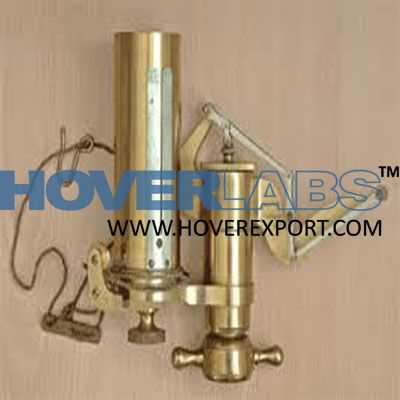Thompson Indicator Straight Line Motion

Model HV-EXP4329
Thompson Indicator Straight Line Motion Science Labs One of sixteen mechanisms built on an A3 board equally suitable for the classroom, drawing office or laboratory. The principal components are made from amber coloured Perspex, pivoted with hollow rivets, and mounted on a white melamine board for contrast and visibility. To see the mechanisms move is far more instructive and convincing than listening to a static lecture. The hollow rivets accept a pencil for transferring the loci of the joints to a sheet of paper, clipped to the board. This ingenious mechanism was invented by Thompson in order to draw a graph of the gas pressure in an engine cylinder against the stroke of the piston. It is derived from the Scott Russell linkage, the principal links being AC and PB with a fixed pivot at P. The turning pair at A is restricted to moving along an arc as the link is driven by the rod ED. E is attached to a piston in a small cylinder connected to the expansion chamber of the engine, (simulated by moving E by hand). This equipment is part of a range designed to both demonstrate and experimentally confirm basic engineering principles. Great care has been given to each item so as to provide wide experimental scope without unduly complicating or compromising the design. Each piece of apparatus is self-contained and compact. Setting up time is minimal, and all measurements are made with the simplest possible instrumentation, so that the student involvement is purely with the engineering principles being taught. Each mechanism is supplied with a manual which gives full instructions for producing the loci and applications of the assembly. The typical graphical result is appended. Features: Low cost, effective teaching Self contained Easily seen from a distance Mechanism clearly understandable Loci drawn for further study Standard mechanism for generating a straight line Three year warranty Range of Experiments To determine the loci of the moving parts of the standard mechanism To establish the characteristics of that mechanism: for example to see which links move faster than other or whether a particular motion (such as a straight line) is developed .






